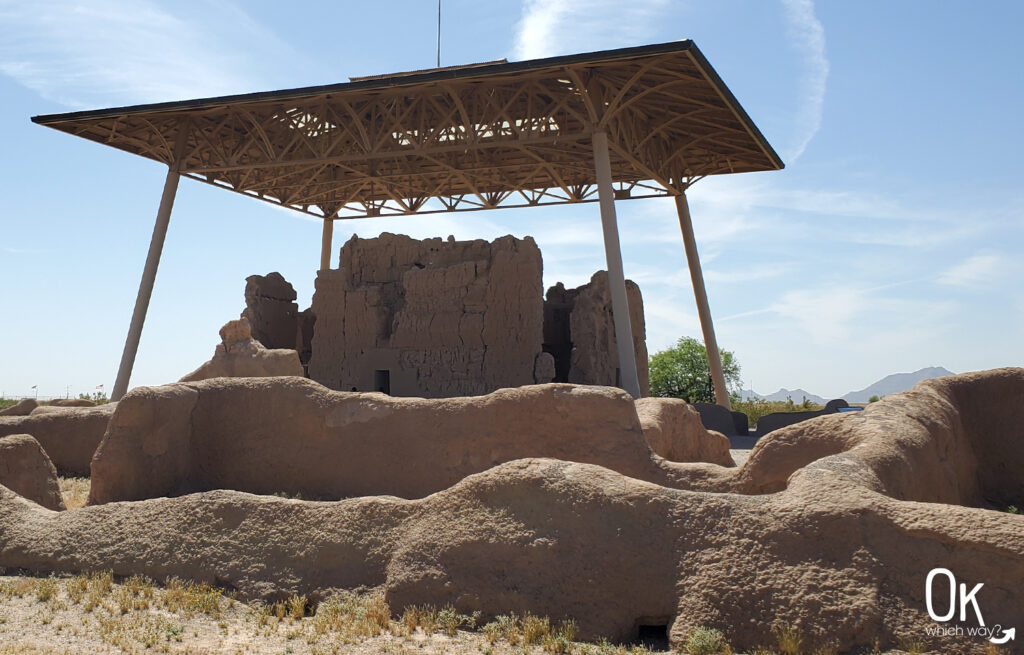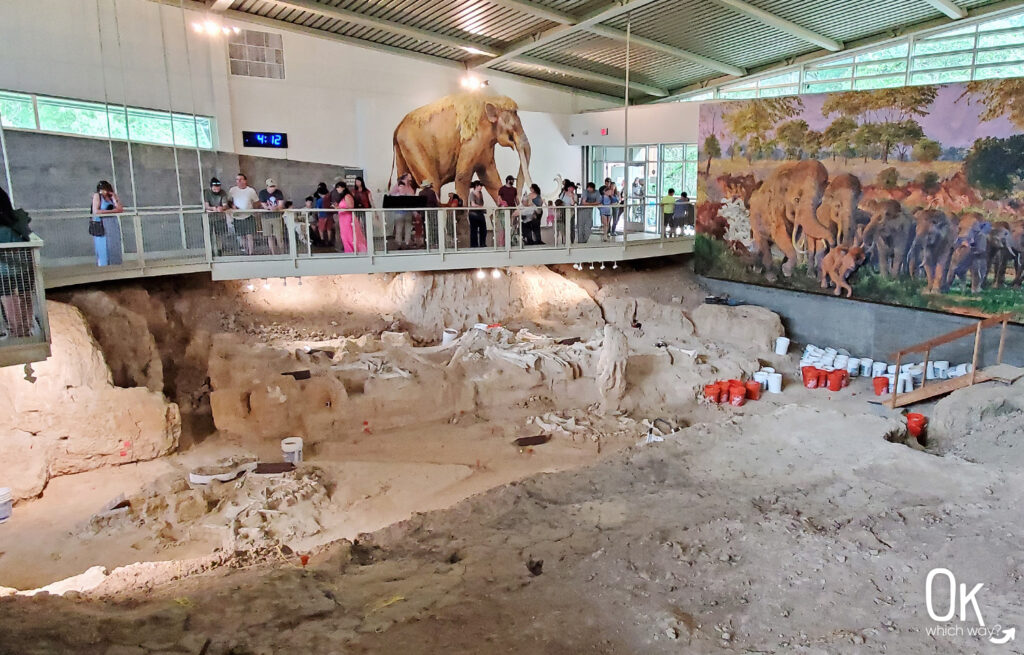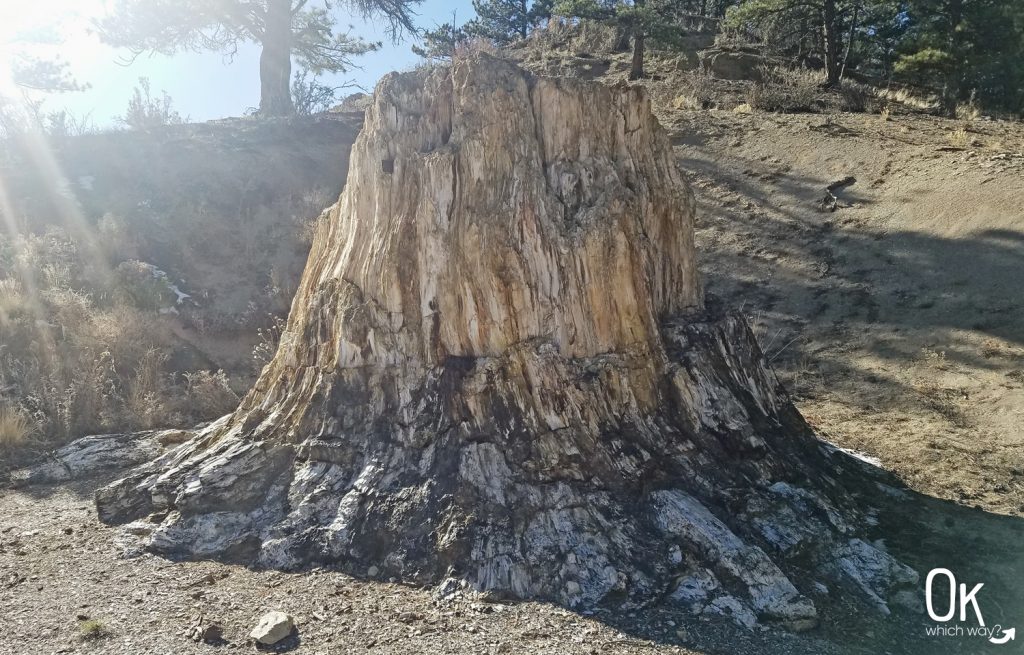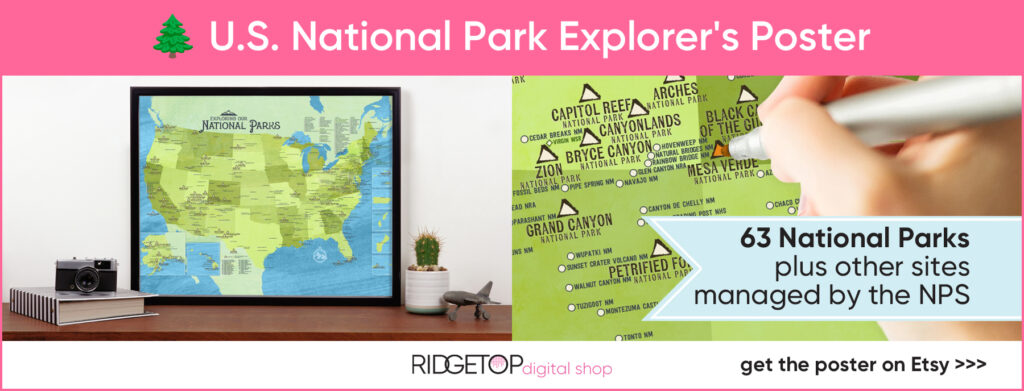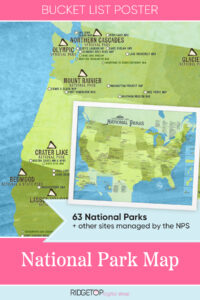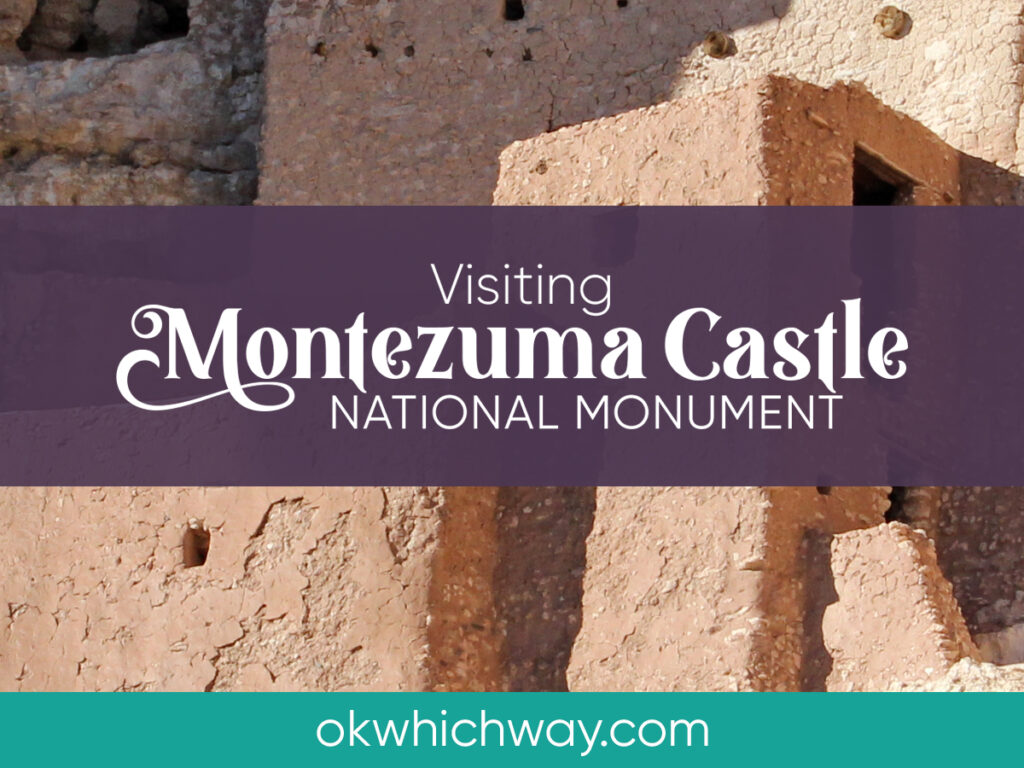
Visiting Montezuma Castle National Monument
Located in central Arizona, 30 miles south of Sedona, is one of the best preserved cliff dwellings in North America. Montezuma Castle is a five story structure built by the Sinagua people within a limestone cliff. It is one of the four original US national monuments.
This post may contain affiliate links. When you make a purchase using one of these affiliate links, we get paid a small commission at no extra cost to you.
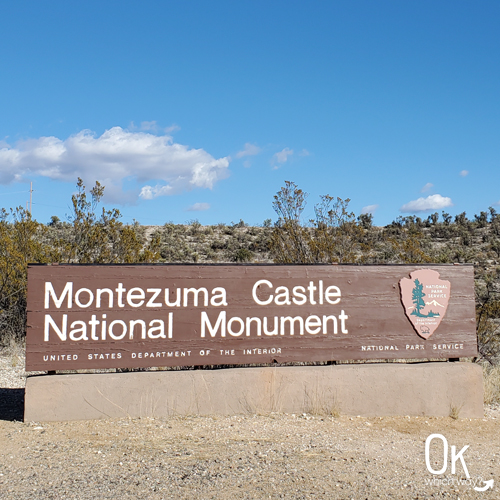
Park Info
Location: Camp Verde, Arizona. 90 minutes north of Phoenix
National Monument Status: 1906
Time Zone: Mountain Standard Time. Except for the Navajo Nation, Arizona does not observe daylight saving time
Lodging/Camping: None on site
Food: None on site
Entrance Fee: $10/person click here to see current fee pricing
Pets: Leashed pets are allowed
About the Sinagua People
• The Southern Sinagua lived at Montezuma Castle and Tuzigoot as early as 650 CE
• They used water from Beaver Creek and Montezuma Well to create irrigation canals
• They grew corns, beans, squash, and cotton
• They mined salt
• They traded with the Hohokam, Ancestral Puebloan, and Mogollon peoples for shells and turquoise to use to decorate their jewelry, as well as for obsidian to make tools
Montezuma Castle Visitor Center
Upon entering the park, the first stop is the visitor center. The visitor center at Montezuma Castle has a small museum and bookstore, as well as the stamp for your passport book. It’s also your entrance to see the ruins.
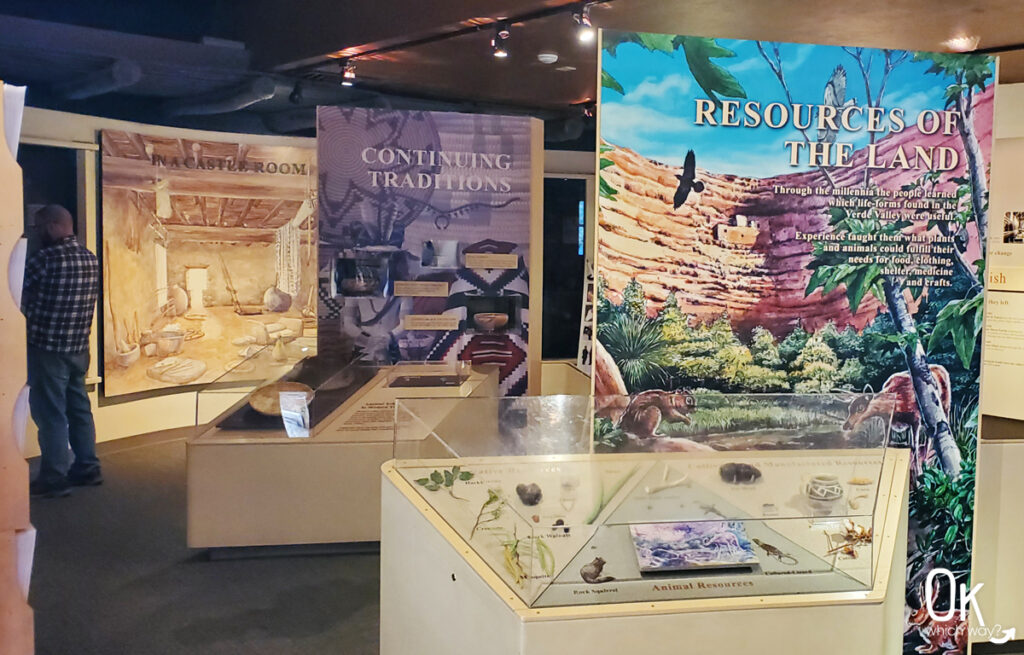
Trail Loop
Right behind the visitor center is a paved .3 mile trail that loops by two cliff dwellings built by the Sinagua people. There are a number of interpretive signs along the way describing the Southern Sinaguan people and natural elements of the Verde Valley.
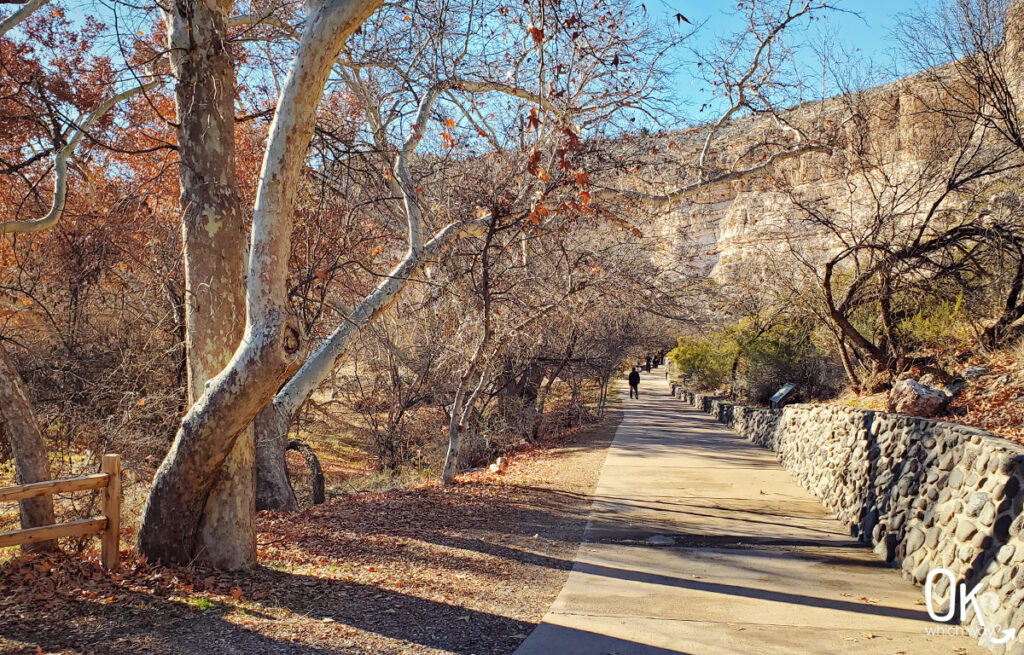
Montezuma Castle
Overlooking Beaver Creek lies an ancient 20 room home that was crafted from a naturally eroded alcove. The structure, built in phases beginning about 1130 CE, provided individual groups each a room measuring approximately 17.5′ x 8′. The walls, constructed using a combination of limestone and river rock, were held together with mud that also served as a protective sealant. The floors and beams were crafted from a variety of sturdy woods – primarily sycamore, but also alder, ash, fir, and pine. Peep holes and doorways offered light during the day, but the afternoons and evening were dark inside.
The home is southern facing providing the warmth of the sun during the winter months and cooling shade during the hot summer days.
The Sinagua people were skilled farmers and thrived here until suddenly migrating to the north and east in the late 1300’s or early 1400’s.
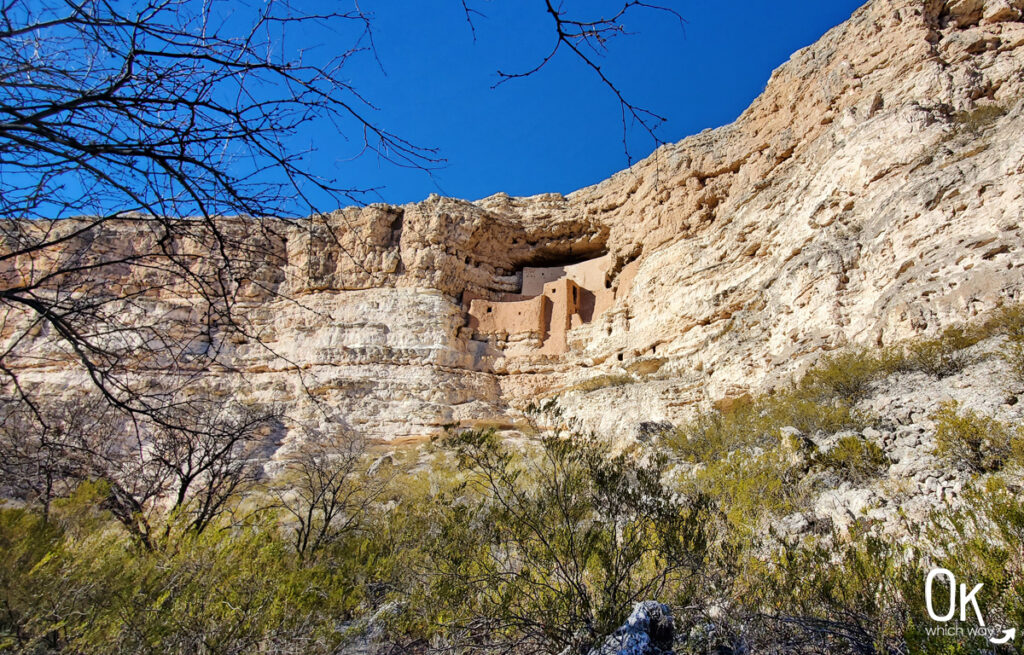
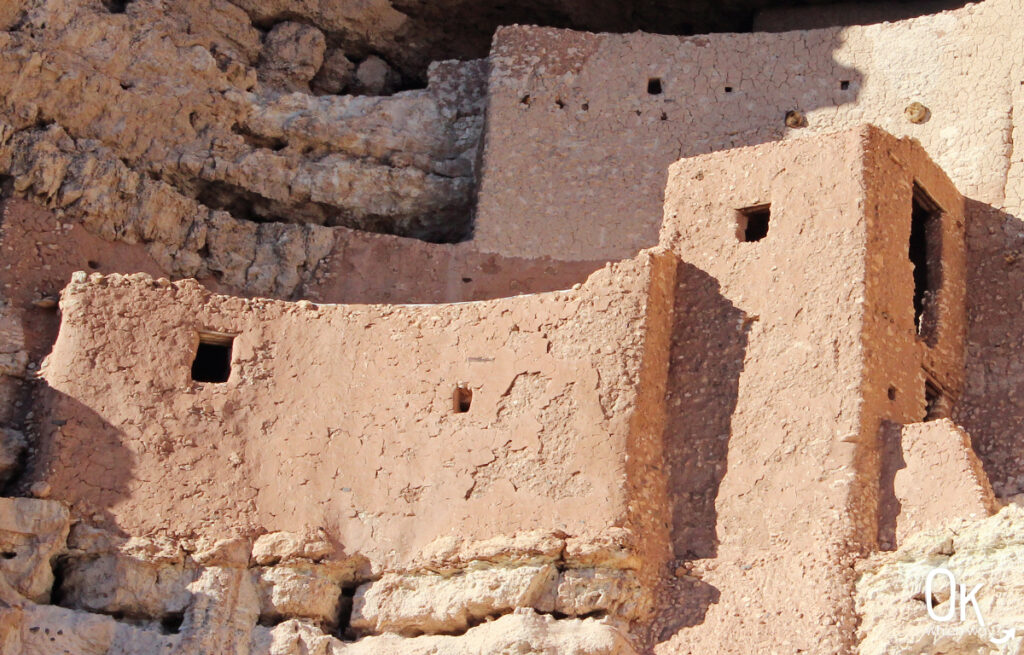
FUN FACT: Montezuma Castle was named for Aztec Emperor Moctezuma II in the 1800’s. The Yavapai know the structure as Gkah-ghaah-gkah-nyuwah (home of the protectors of the Yavapai). The Hopi refer to it as Sakaytaka (place where the step ladders are going up) and Wupat’pela (long high walls).
Along the path is a diorama of a day in the life inside Montezuma Castle. I loved it and examined it for quite a long time. It really helped me understand how the Sinagua people lived.
I am not afraid of heights, but I do not like climbing ladders. Living here, I guess I would have gotten over that fear at an early age.

Castle A
After viewing Montezuma Castle continue along the path to look at the ruins of Castle A.
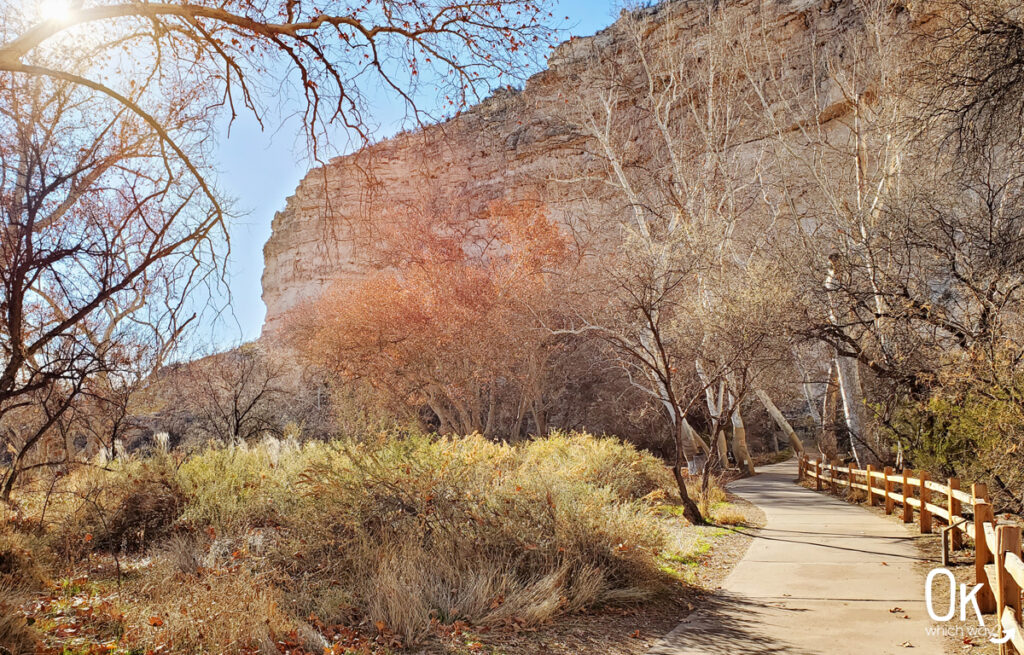
Archeologists excavated Castle A in the 1930’s uncovering a cliff dwelling larger than Montezuma Castle. The pueblo had 45 rooms and was thought to have burned in the late 1300’s. Caveate rooms in the limestone are still visible today.
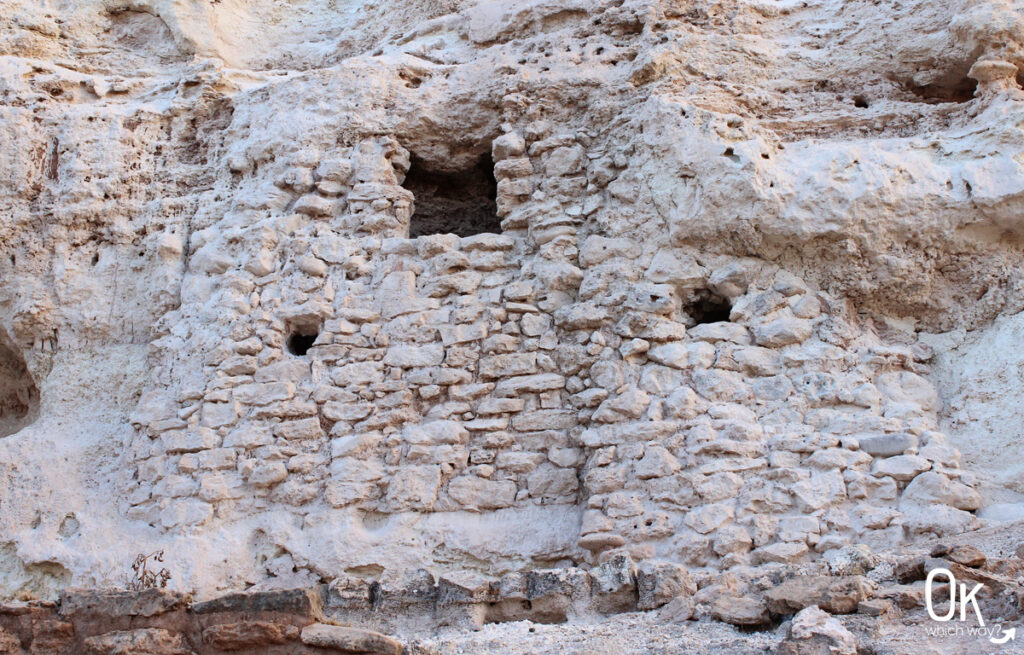
Montezuma Well
Eleven miles north of Montezuma Castle is a limestone sinkhole filled with water known as Montezuma Well. Fed from an underground spring, the natural well holds 15 million gallons of water.
Prior to the Sinaguan people building dwellings withing the cliffs surrounding the well, the Hohokam built pit houses nearby. The ruins of one can still be seen at Montezuma Well.
Conclusion
While not a highly sought after destination all on its own, Montezuma Castle is definitely worth a visit if you are in central Arizona. It’s just cool to take some time and get a better understanding about how those before us lived.
Also, it’s an easy place to visit. The visitor center is near the parking lot and the trail around the ruins is paved and not very long.
If you get the opportunity to visit, I’d love to know what you thought of seeing this 600 year old home.
Optional Items to Bring
Four Original National Monuments
President Theodore Roosevelt signed into law The Antiquities Act of 1906. It provides legal protection of cultural and natural resources of historic or scientific interest that reside on federal land. By the end of 1906, four sites had been designated as national monuments:
LEAVE NO TRACE
Geology
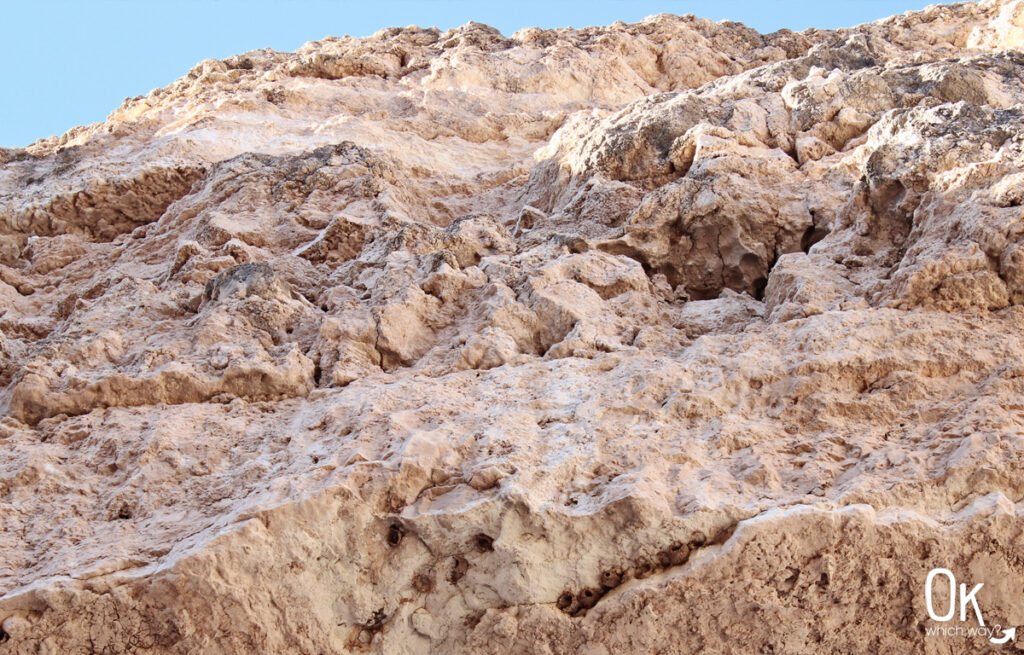
Physiographically, Montezuma Castle sits within the Basin and Range Province, near the Colorado Plateau. The area was once covered by a shallow sea resulting in leftover beds of sandstone and limestone.
International Dark Sky Community ✬彡
While Montezuma Castle is not a Dark Sky Park, the town of Camp Verde is a designated International Dark Sky Community.
Thinking About Visiting Montezuma Castle National Monument?
Pin This to Help Plan Your Trip ⬇
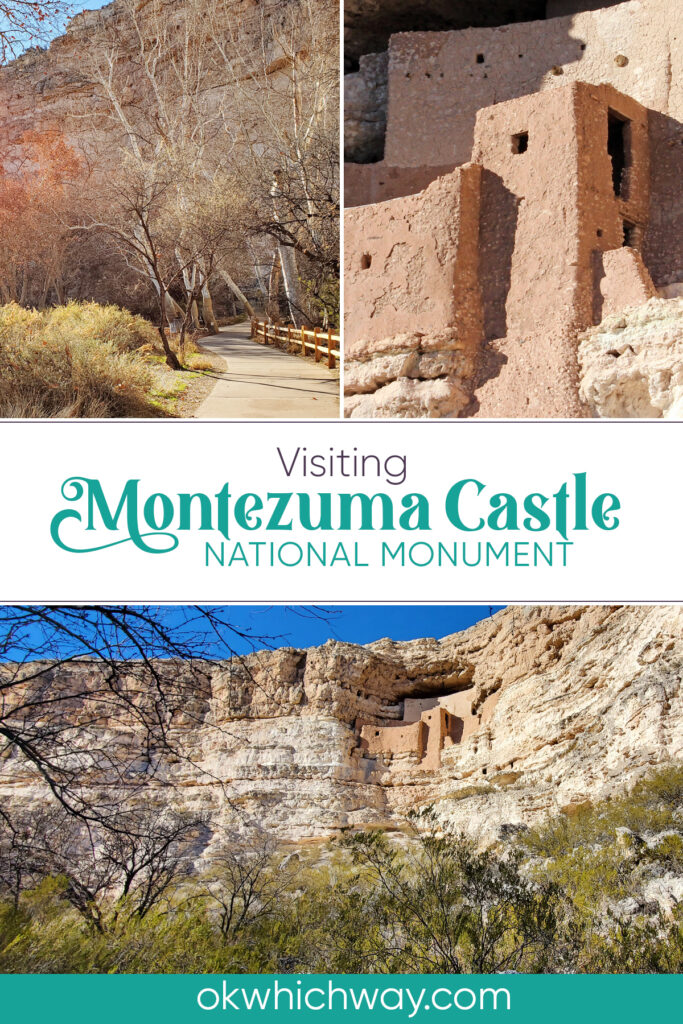
Other National Monuments to Explore

